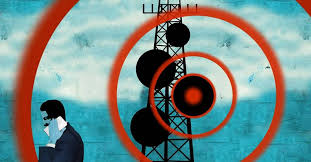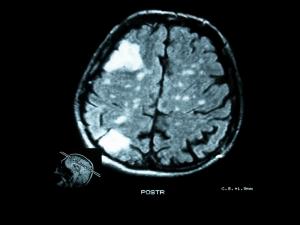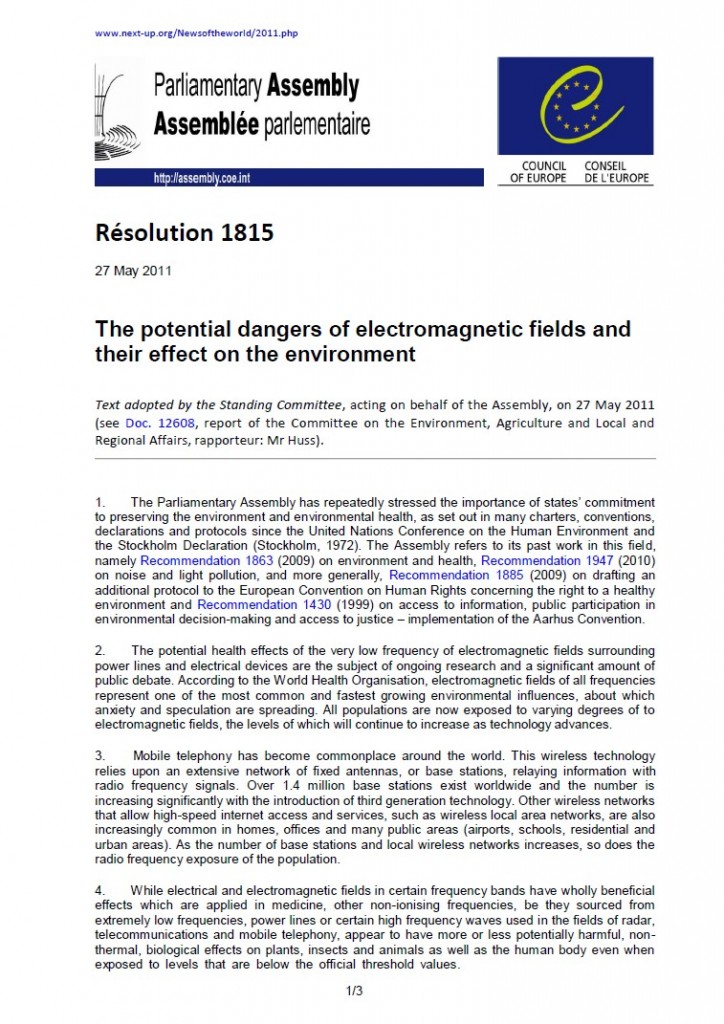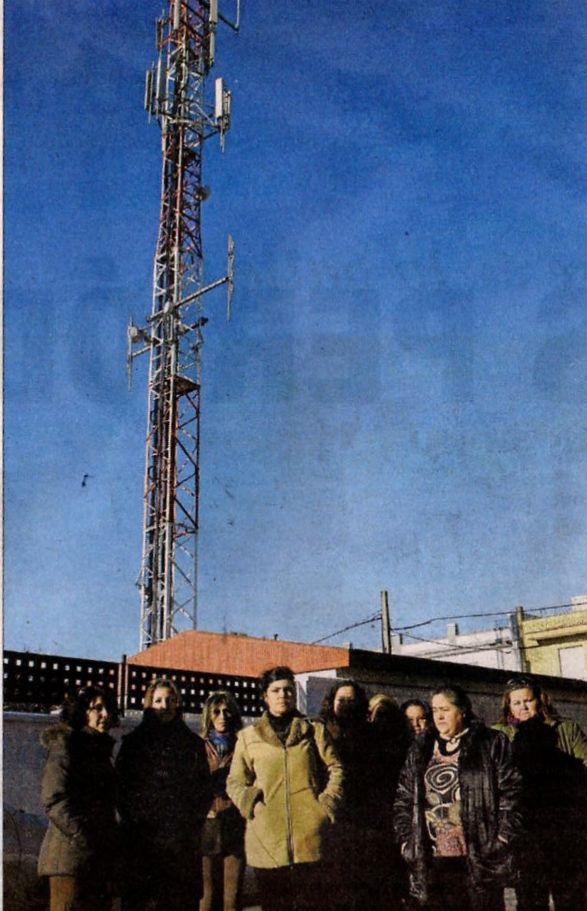Portada del sitio > Estudios Científicos > Neuropsychological sequelae of digital mobile phone exposure in (...)
Neuropsychologia. 2006 Apr 14;
Neuropsychological sequelae of digital mobile phone exposure in humans.
Keetley V, Wood AW, Spong J, Stough. Brain Sciences Institute, Swinburne University
Lunes 24 de abril de 2006 · 2355 lecturas
Neuropsychologia. 2006 Apr 14;
Neuropsychological sequelae of digital mobile phone exposure in humans.
Keetley V, Wood AW, Spong J, Stough C.
Brain Sciences Institute, Swinburne University, P.O. Box 218, Hawthorn, Vic. 3122, Australia.
The effect of electromagnetic fields from digital mobile phones (DMP) on cognitive functioning is an area receiving increased attention. This study compares the performance of 120 volunteers on 8 neuropsychological tests during real or sham exposure to a DMP set to maximum permissible radiofrequency power output. When results were adjusted for known covariates (gender, age, or education), several alterations at significance levels of p<0.05 were obtained. Of these, simple and choice reaction times (CRT) showed strong evidence of impairment. Further, performance on the Trail Making Task (TMT) improved, supporting the hypothesis that DMP radiofrequency emissions improve the speed of processing of information held in working memory.
Ver el abstract original AQUÍ
Noticia de ABC Science On line:
Mobile phones may slow your reactions
Alex Wilde
ABC Science Online
Tuesday, 25 April 2006
Electromagnetic radiation from mobile phones may affect how fast you brake or turn while driving (Image: iStockphoto)
Electromagnetic radiation from your mobile phone may impair your ability to make snap decisions, say when driving a car, an Australian study shows.
The study, which will be published in the journal Neuropsychologia, found evidence of slowed reactions, on both simple reactions and more complex reactions, such as choosing a response when there is more than one alternative.
The researchers found these effects after people were exposed to electromagnetic radiation equivalent to spending 30 minutes on the phone.
Lead researcher Professor Con Stough, director of the Brain Sciences Institute at Swinburne University of Technology in Melbourne, says the reactions tested experimentally have real-life equivalents, such as making braking decisions when driving a car.
"If you are driving a car and somebody runs out in front you, your simple reaction time is the time it takes to brake, while your choice reaction time could be the time it takes to decide between braking, turning left, turning right or hooting the horn to avoid the collision," he says.
The study’s 120 volunteers received either active or ’sham’ radiation emissions for 30 minutes before swapping for a further 30 minutes. This meant a total active exposure of 30 minutes, equivalent to a long phone call.
The researchers then tested the study participant’s reaction times and memory using a battery of neuropsychological tests.
As well as the effect on reactions times, the study found that radiation from mobile phones seems to improve working memory, used for example when remembering a phone number long enough to dial it.
But Stough says this memory finding should be interpreted with caution because the underlying biological mechanism is not known.
A small effect
Stough emphasises that while the study raises the possibility that short-term exposure of mobile phone emissions affect brain activity, the effect is small.
"Further investigations such as functional magnetic resonance imaging are needed to confirm the neuropsychological changes associated with mobile phone emissions," he says.
"Whether the results will affect the way in which people make decisions about using mobile phones I don’t know. Mobile phones are such a part of how we operate these days that it is unlikely."
Researchers are still debating about whether mobile phones have a carcinogenic effect. But the World Health Organization says there is insufficient evidence to support this argument and studies are ongoing.
Sleep studies, however, lend support that mobile phone emissions alter brain activity.
Recent findings show that that electromagnetic radiation received after making a mobile phone call stimulates the brain during the early stages of sleep.
Related Stories
Mobile phones affect brain waves in bed, News in Science 28 Mar 2006
Recharge your mobile wherever you are, News in Science 5 Apr 2004
Mobile phone users slow down when driving, News in Science 14 Jan 2004
Ver la noticia original AQUÍ







